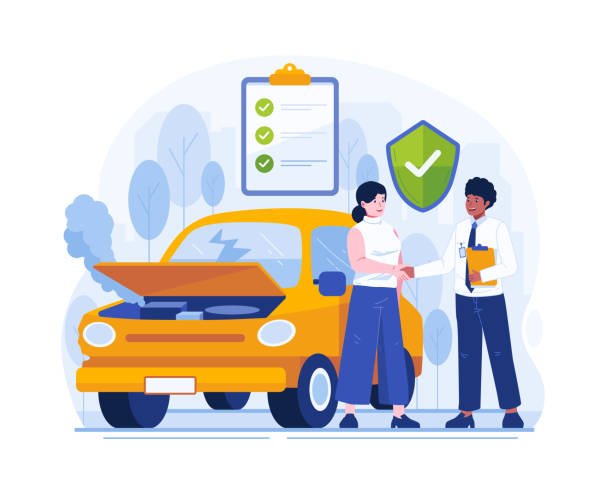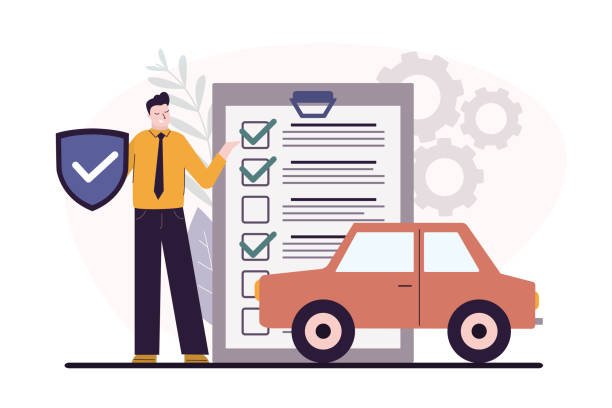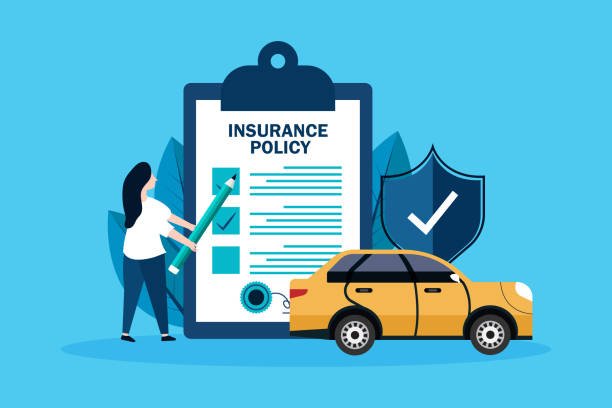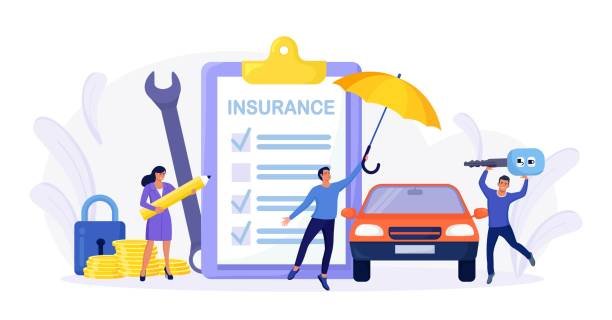Introduction
Starting your journey as a new driver can be exciting, but it comes with responsibilities. One of the most important responsibilities is ensuring that you have the right car insurance coverage. Whether you’re fresh behind the wheel or just getting ready to sign up for a policy, understanding car insurance is crucial. Car insurance is not just a legal requirement, but it also offers peace of mind in case of accidents or unexpected situations.
This article will guide you through the top 10 car insurance tips for new drivers to help you make informed decisions, save money, and stay safe on the road.
Tip 1: Understand the Basics of Car Insurance
Before diving into the details, it’s important to have a clear understanding of car insurance. Car insurance is a contract between you and an insurance company that provides financial protection against damages or injuries caused by accidents, theft, or other covered events.
The basic types of coverage you need to be familiar with include:
- Liability Coverage: This is the minimum coverage required by law in most states. It covers bodily injury and property damage caused to others in an accident you’re responsible for.
- Collision Coverage: This covers damage to your own car in case of a crash, regardless of who is at fault.
- Comprehensive Coverage: This protects against non-collision incidents like theft, vandalism, or natural disasters.
- Personal Injury Protection (PIP): This covers medical expenses for you and your passengers after an accident.
Knowing these basics will help you understand your options and make the best decision for your situation.
Tip 2: Choose the Right Coverage for Your Needs
Choosing the right car insurance coverage is essential. As a new driver, you might be tempted to opt for the cheapest policy, but it’s important to balance affordability with adequate protection.

- Minimum State Requirements: Each state has minimum car insurance requirements. Make sure you meet those, but consider adding extra coverage for better protection.
- Deductibles: The deductible is the amount you pay out-of-pocket before your insurance kicks in. A higher deductible can lower your premium, but it’s important to choose a deductible that you can afford to pay in case of an accident.
Understanding your own needs and your budget will help you make a choice that ensures you’re properly protected while also saving money.
Tip 3: Shop Around and Compare Quotes
One of the best ways to save money as a new driver is by comparing quotes from different insurance companies. Insurance premiums can vary significantly from one provider to another, and it’s essential to find the best deal for your coverage needs.
- How to Get Quotes: Many insurance companies offer online tools that allow you to easily compare quotes. Make sure to provide the same information to each provider so you’re comparing apples to apples.
- What Affects the Price: Several factors can affect your premium, including your age, location, driving history, and the type of car you drive. Be prepared to answer questions about these factors when getting quotes.
By shopping around, you can find the best combination of coverage and cost for your personal situation.
Tip 4: Maintain a Good Driving Record
Your driving record plays a significant role in determining your insurance rates. New drivers often face higher premiums due to their lack of experience. However, by maintaining a clean driving record, you can reduce your rates over time.
- How It Affects Rates: Insurance companies typically offer discounts to drivers with a history of safe driving. Accidents, traffic tickets, or violations can cause your premiums to rise.
- Stay Accident-Free: Practice safe driving habits, follow traffic laws, and avoid distractions while driving. The longer you drive without incidents, the lower your premiums will become.

Tip 5: Take Advantage of Discounts
Many insurance companies offer discounts, and new drivers can benefit from several of them. Don’t be afraid to ask your insurer about available discounts.
- Common Discounts: Some popular discounts include:
- Good Student Discounts: If you’re a student with good grades, you might be eligible for a discount.
- Safe Driver Discounts: If you have a clean driving record, insurers may offer discounts as a reward.
- Driver’s Education Discounts: Completing a driver’s education course can sometimes lead to lower premiums.
These discounts can add up, helping you save money without sacrificing coverage.
Tip 6: Consider Usage-Based Insurance (UBI)
Usage-Based Insurance (UBI), also known as pay-per-mile insurance, is a relatively new option that can be ideal for new drivers who don’t drive much.
- How UBI Works: UBI programs track your driving habits using a device installed in your car or through an app. Your premium is based on how much and how safely you drive.
- Pros and Cons: If you’re a safe driver who doesn’t use your car frequently, UBI can save you money. However, it’s important to note that some people may not like having their driving behavior monitored.
Consider UBI if you want to save money and maintain control over your premium.
Tip 7: Increase Your Deductible to Lower Premiums
If you’re looking to lower your premiums, consider raising your deductible. A higher deductible means you’ll pay more out-of-pocket in the event of a claim, but it can lower your monthly premium.
- How It Works: Let’s say you increase your deductible from $500 to $1,000. In exchange, your insurance company may lower your premium by a significant amount.
- Risks: While raising your deductible can save money in the short term, it’s important to be financially prepared for the higher out-of-pocket cost if an accident occurs.
Tip 8: Keep Your Car in Safe Condition
Insurance premiums aren’t just based on your driving habits—they also take into account the condition of your vehicle. A well-maintained car with advanced safety features can lower your premium.
- Safety Features: Cars with features like anti-lock brakes, airbags, and crash sensors are often cheaper to insure.
- Regular Maintenance: Regular inspections and maintenance can reduce the likelihood of accidents, which can help keep your premiums low.
Tip 9: Bundle Your Insurance Policies
If you already have homeowners or renters insurance, consider bundling your car insurance with the same provider. Many insurance companies offer discounts when you bundle multiple policies.
- How Bundling Saves Money: Bundling policies is often more affordable than buying them separately, and some insurers offer substantial discounts for multi-policy holders.

Tip 10: Review Your Policy Annually
As your life and driving habits change, so should your insurance policy. Make it a habit to review your policy every year to ensure that you still have the right coverage.
- Life Changes: If you move, buy a new car, or your driving habits change, your insurance needs may also change. Reviewing your policy can help ensure you’re not overpaying or underinsured.
Conclusion
Car insurance is a vital aspect of being a responsible driver, and as a new driver, you have the opportunity to make smart choices that will save you money and keep you protected. By understanding the basics of car insurance, comparing quotes, and maintaining a good driving record, you can ensure that you get the best possible coverage at the most affordable price.
FAQs
- What insurance is best for first-time drivers?
- The best insurance for first-time drivers typically includes liability coverage, which is required by law in most states, along with optional collision and comprehensive coverage for added protection. For new drivers, it’s also advisable to look for insurers offering discounts for good students or drivers who have completed a driver’s education course. Choosing a provider that offers affordable rates while ensuring sufficient protection for both you and others on the road is key.
- What insurance group is best for new drivers?
- Insurance groups range from 1 (cheapest) to 50 (most expensive). New drivers should aim for vehicles in lower insurance groups to save money on premiums. Generally, smaller cars with safety features like anti-lock brakes, airbags, and lower repair costs tend to fall into these cheaper groups. You should look for a car that is economical in terms of insurance costs to keep your premiums low while still meeting your coverage needs.
- What are the most important things for car insurance?
- The most important factors for car insurance include:
- Coverage Type: Ensure you have the right mix of liability, collision, and comprehensive coverage.
- Deductibles: Choose a deductible that balances affordability with out-of-pocket costs.
- Premiums: Make sure the monthly or annual premium fits your budget.
- Safety Features: Cars with advanced safety features can reduce your insurance costs.
- Driving Record: Maintaining a clean driving record is crucial to keeping your premiums low.
- The most important factors for car insurance include:
- What is the most important insurance a driver can have?
- The most important insurance for any driver is liability coverage. It is mandatory in most states and covers the costs of damage or injuries you cause to others in an accident. Beyond liability, it’s advisable to have collision and comprehensive coverage to protect your own vehicle and mitigate the risk of financial loss in case of accidents, theft, or natural disasters.
- What is the insurance for a new driver?
- For a new driver, the primary insurance is usually liability insurance, which covers any damage or injuries you may cause to others in an accident. It’s also common to opt for collision and comprehensive coverage for added protection. Many new drivers also qualify for discounts like good student discounts or completing a driver’s education course, so it’s worth asking providers about potential savings. It’s essential to balance cost and coverage to get the best deal for your needs.



Pingback: Essential Guide to Car Insurance: Key Facts & Coverage